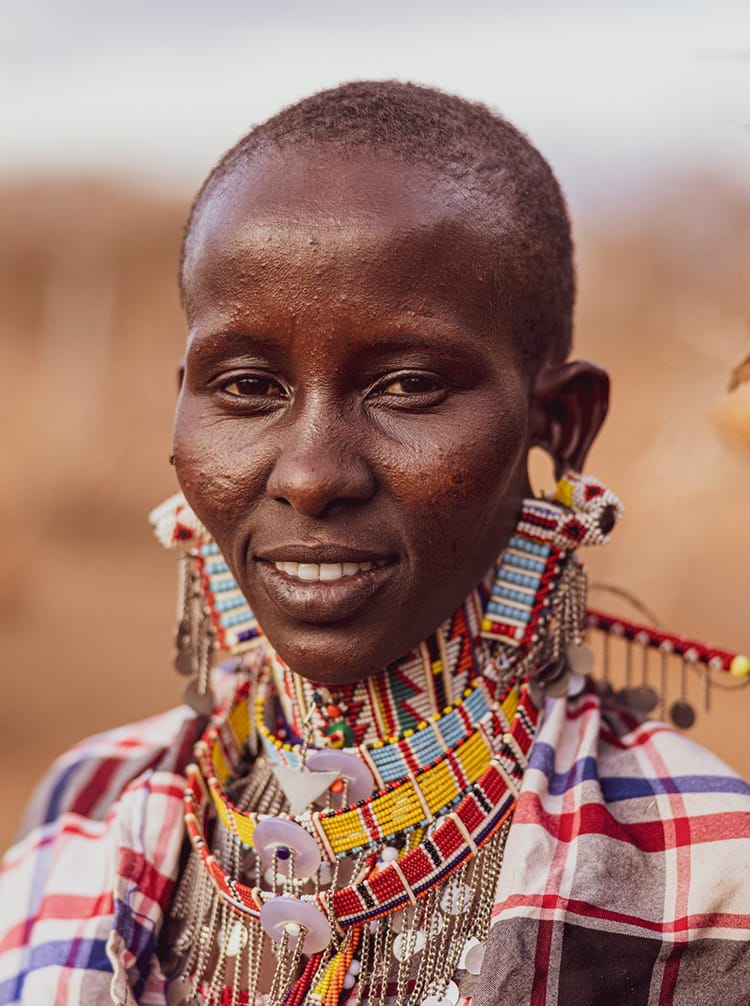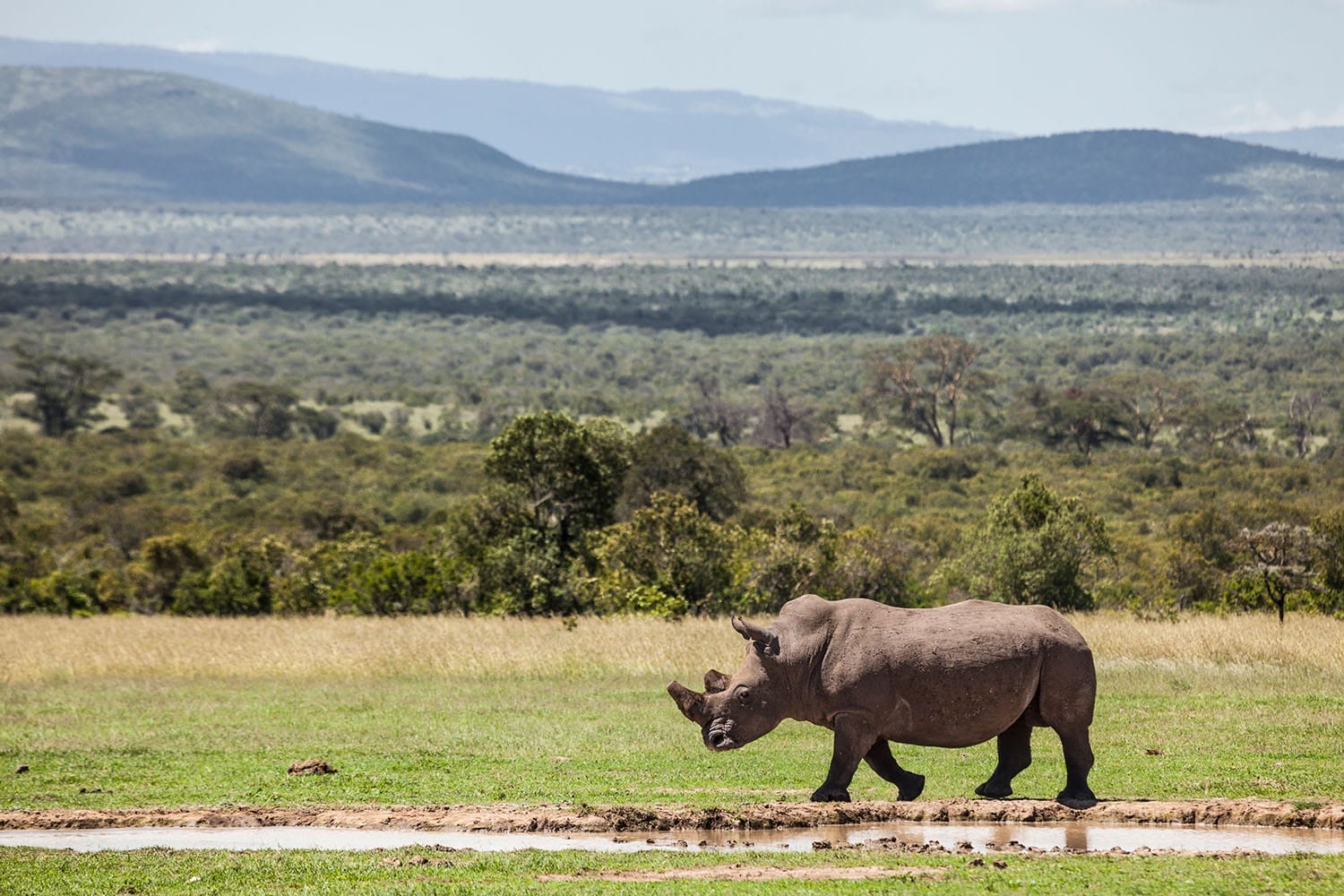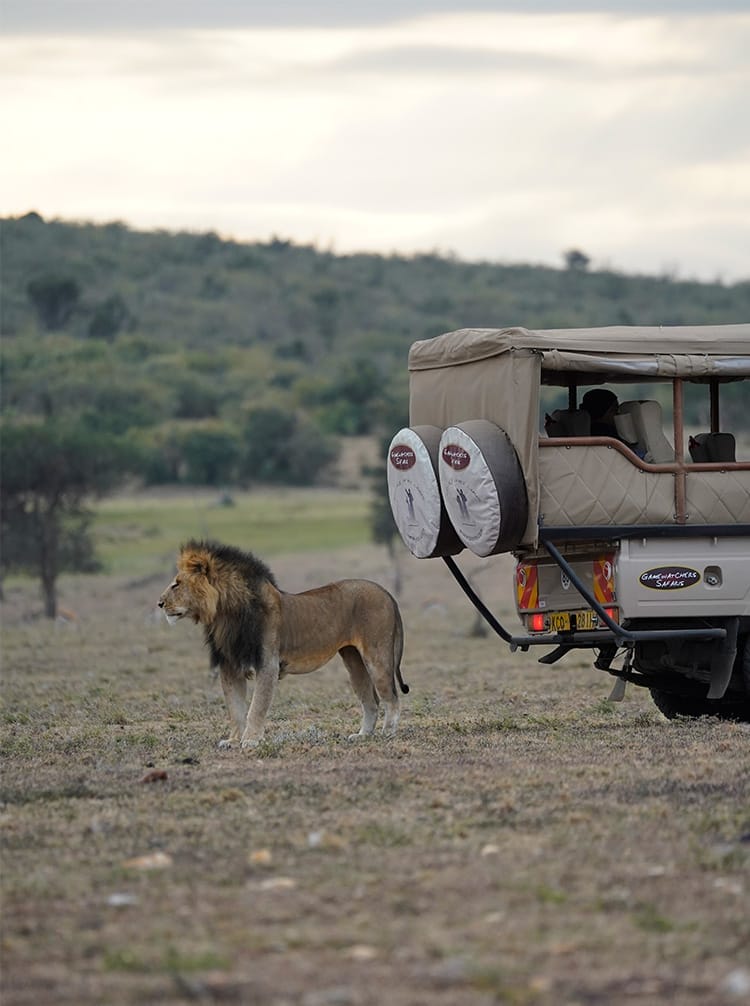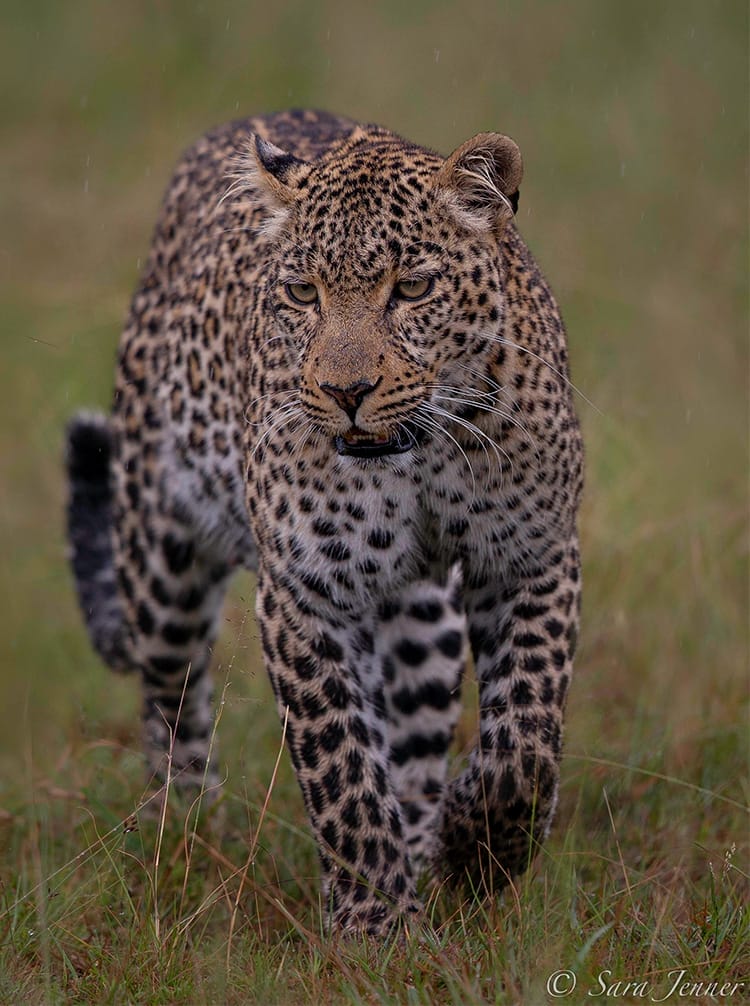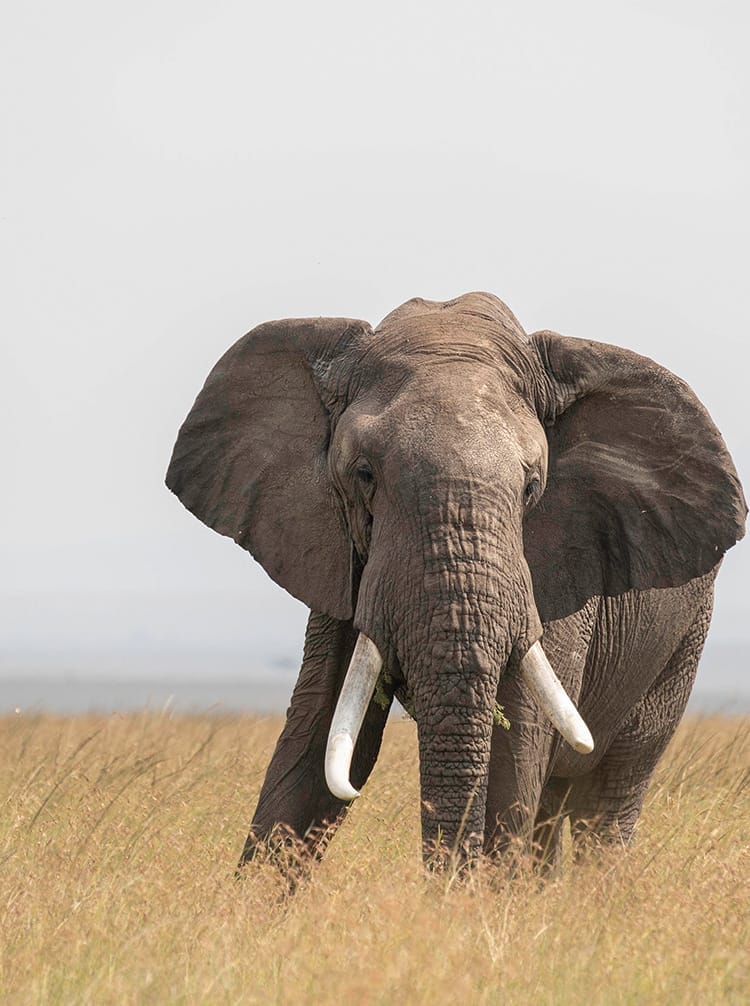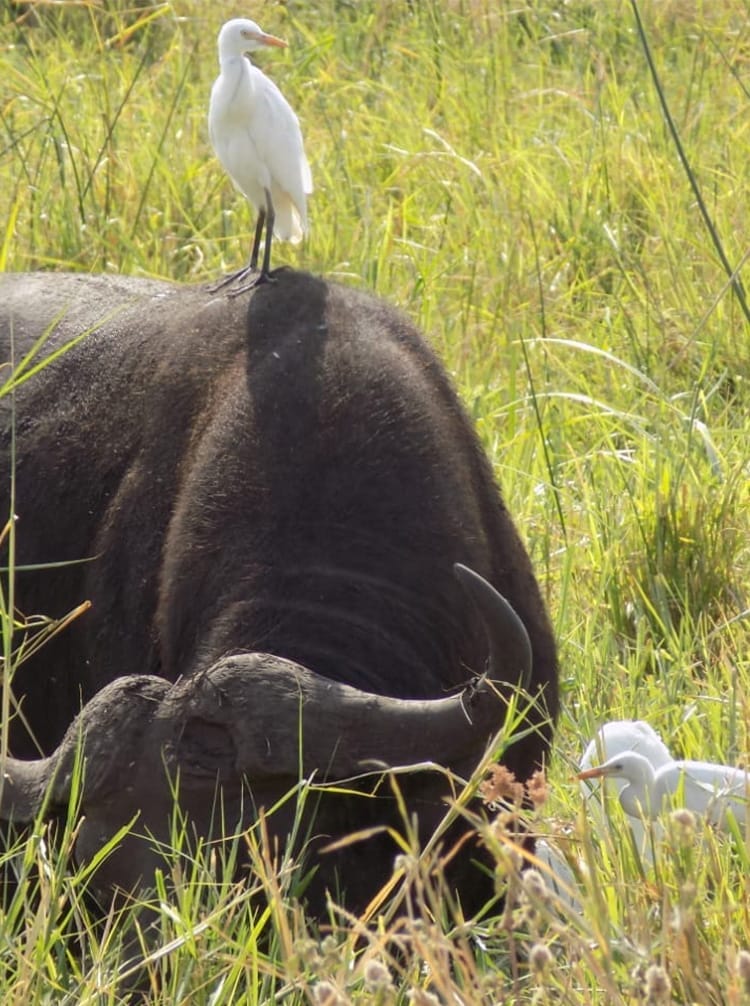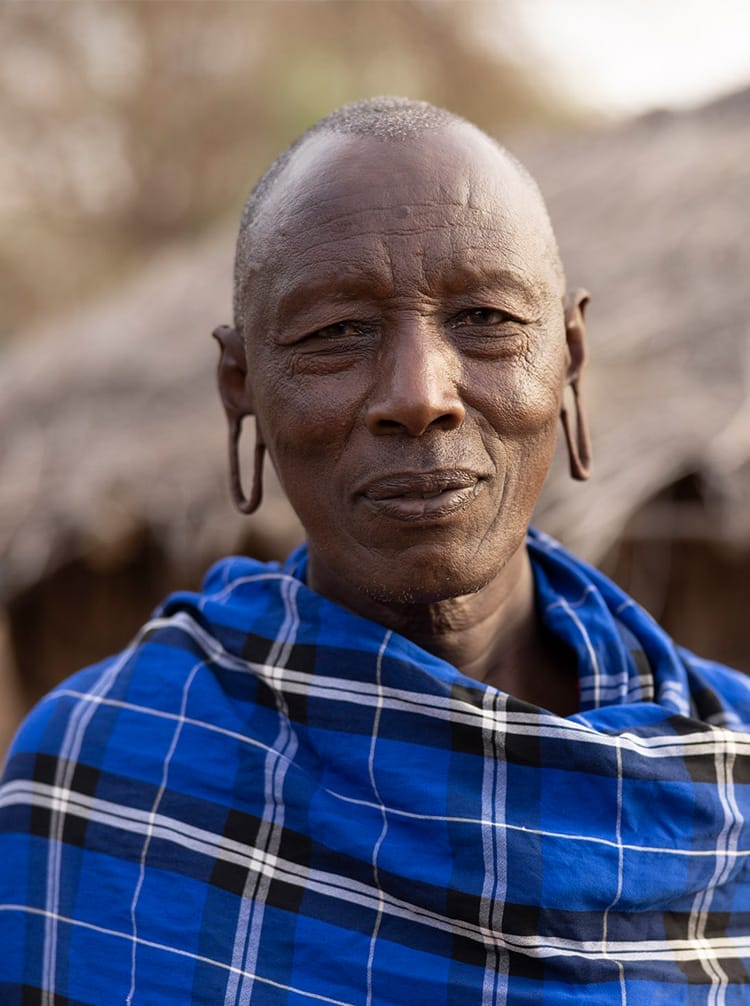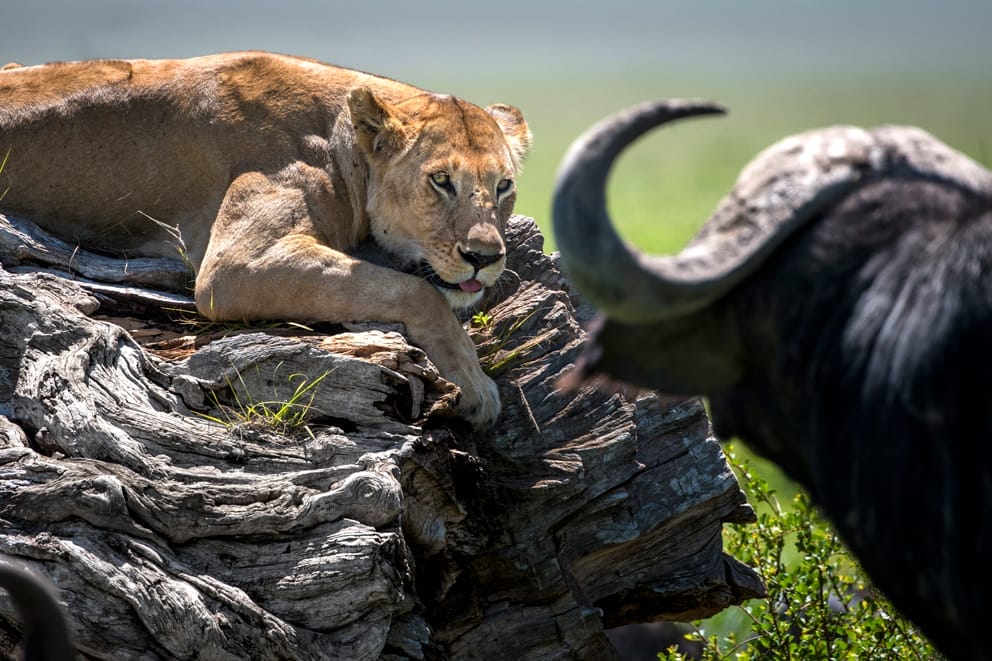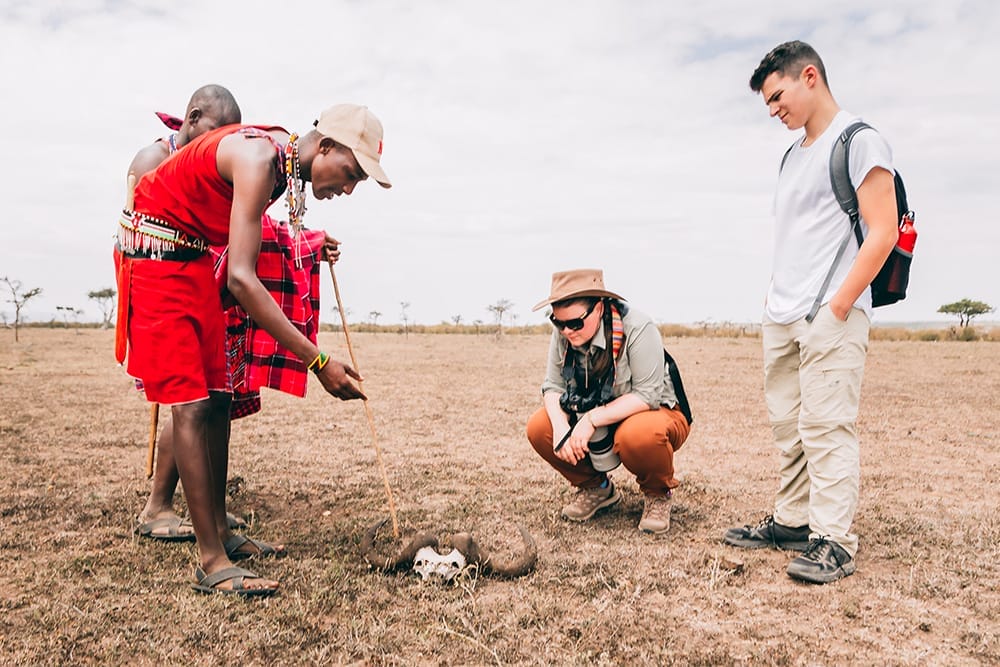Let Us Design Your Dream Kenya Safari
Embark on the adventure of a lifetime with a tailor-made luxury safari in Kenya. If you dream of witnessing the “big five” in their natural habitat, then this experience is a must. With Gamewatchers Safaris, you can enjoy the thrill of observing African wildlife up close, all while staying in good quality accommodation and traveling in open-sided safari vehicles with highly qualified guides.
Whether you are looking for a “back to nature” experience in the wilds of Kenya, a luxury safari camp or lodge, a beach holiday or a more specialist trip catering for specific hobbies or interests, get in touch with one of our dedicated Safari Advisors today to start planning your dream holiday to Kenya.
Our favourite Kenya Safaris
To truly experience the magic of Kenya, a guided safari is the ideal way to explore its rich landscapes and wildlife. Our expert consultants can design a bespoke itinerary just for you—or browse our handpicked selection of our recommended Kenya safari tours below to start planning your unforgettable adventure today. Explore the beauty of Kenya and create memories to last a lifetime.
Porini Safari Camps & Cottages
Our award winning camps are situated in some of the most breathtaking natural locations in the country, and offer unparalleled access to Kenya’s incredible wildlife. With world-class guides on hand to lead your journey, you’ll have the opportunity to see everything from majestic lions to towering giraffes, right in their natural habitats.
Places to visit in Kenya

Everything You Need To Know Before You Go
Get essential details about getting there, Visas, what to pack, and travel tips to make your safari seamless.
Verified Safari stays in Gamewhatchers Amboseli, Lion and Cheetah Camps in late June of 2025 A very exciting and well-planned event in Southwest Kenya. We stayed in 3 camps, and all were well organized and well run. The staff at each camp were most friendly and accommodating, and that is not to mention the food, which was excellent all the way around. The Gamewatcher Facilitator of our safari, Wayne Hammond, had the patience of Job in that there are several pre-safari obstacles to overcome and it takes patience to walk one through them all. The number of animals were much better than I expected in a non-migration period, and the landscapes were captivating. I would highly recommend this company if you were looking for an updated experience typical of what would have been in Hemingway's time.Verified Relax and Enjoy We visited three camps and had a super experience at each one. Camp managers, staff, guides and drivers were outstanding. Joseph, Amos, Ben , Dennis & Dalton were helpful, knowledgeable & friendly. The tents were comfortable with inside toilet & gravity shower. Food is tasty and plentiful in the dining room or on a ride. No worries. Planning with Wayne Hammond was so easy . Just sit back, relax and enjoy the views.Verified Game Watchers is simply a must-do! Simply put, Game Watchers delivered an unforgettable and extraordinary adventure for us! From the moment we contacted Wayne from Game Watchers to inquire about the trip to the end of a fantastic journey, the communication and personal care were immediate and seamless. Game Watchers provided us with an exceptional experience of an African Safari that allowed us to slow down and take a closer look at not only the animals, but the birds, flora, and landscape of the African savannah through the eyes of authentic Masai game watchers.Other considerations that set Game Watchers apart were the outstanding accommodations, meals, and up-close views of the animals. The camp directors, guides, drivers, and campsite staff were exceptionally knowledgeable, friendly, and helpful. We enjoyed their commentary, cultural insights, and laughed at their jokes and amusing stories. We particularly enjoyed our morning breakfast and evening cocktails with our guides each day on the savannah. Indeed, we felt sad when we had to leave one camp and go to another where we experienced the same welcoming staff, outstanding accommodations (complete with charging outlets for phones), scenic views of the savannah, and close encounters with the animals. Game Watchers crafted an unforgettable experience for us that blended the thrill of an African safari with the personal care and comfort of a premium hotel. For anyone who loves adventure, nature, and storytelling, Game Watchers is simply a must-do!Verified You Can't Go Wrong With Gamewatchers Porini Camps My second trip with Gamewatchers in Kenya. I was lucky enough to book through Wayne both times, and he does an amazing job of taking care of his clients (even when they screw things up themselves). The camps are wonderful. The guides are amazing. The food is great. You will be spoiled rotten by a Gamewatchers experience!Verified Fantastic Stay We had the pleasure of staying at three of their camps in Kenya - two adjacent to the Mara and one at ol Pejeta. The entire organization is great - they are very organized, professional and responsive. Starting from the booking process all the way through to the meet and greet at the airports and airstrips - they are professionals. They managed to ensure that our trip went off smoothly when so many things could have gone wrong. Porini Mara - great location, excellent stay, great food and guides. The exclusive agreement with the community really makes a difference. Porini Lion - great accommodation, great service, good food and guides. Porini Rhino - fantastic location, great service and food, great guides. We would certainly recommend this company - and have done - to friends and family thinking about a safari trip to Kenya.Verified Repeat customers We`ve used this company several times over the past five years or so, and we like the way they do things. Everything is very organised, and their staff in the camps we have stayed in all operate to the highest standard in all respects. Well done, all!Verified Wild life and nature at its best at eco friendly but luxurious camps All the safari was very good and well organized. All the camps were from very good to excellent while the food in all three was very good and good variety. The staff in all camps were very professional, friendly and tried to accommodate all the guests needs. The guides were experienced and knowledgeable. The wildlife viewing was great as in Kenya but the scenery and Okavango delta area was just beautiful The whole safari was well organised with no issues, good and professional staff while the activities organized were very special and you really felt that you are very close to nature and wild life but without disturbing them. Just keep up the good work that you are doing.Verified An epic vacation! Wow, what a trip! I lived in Africa for 8 years and have gone on many safaris in numerous African countries, but my recent trip with Gamewatchers to their Porini Camp in a conservancy outside the Masai Mara was by far the best. Great service, great animal watching, great facilities, and great staff. My family of four traveled with five other families- 18 of us in total- and had an absolutely incredible experience. I can not recommend Gamewatchers and Porini Camps more highly.Verified Our experience - start to finish - far exceeded our expectations! We HIGHLY recommend Gamewatchers Safaris and their Porini Bush Camps.Our experience - start to finish - far exceeded our expectations. Our safari planning consultant, Wayne Hammond designed a safari itinerary based on what he heard about our individual desires (husband/wife and female friend). He was very attentive to answering our seemingly never-ending questions.From the moment a Gamewatchers representative met us at the airport at 1:30 am when our flight arrived, to the moment another representative dropped us off at our hotel after the safari, there wasn’t a single hiccup.We chose a fly-in safari staying at three different Gamewatchers’ Porini Bush Camps. Every single staff member was so welcoming and attentive, from the camp managers, guides, chefs and dining staff to everyone else who served us.The three sets of guides were just terrific - so knowledgeable, humorous, and willing to stop for as long as we wanted take pictures or enjoy a scene. The food was good and varied! We particularly enjoyed our bush breakfasts and lunches. The tents were very roomy and nicely appointed. We felt perfectly safe in our tents at night, even though we knew there were animals not too far away. The safari drives themselves were absolutely amazing. Two of us saw the "big five;" and the third saw four of the five. It was really a thrill to see three of the four prides in Olare Motorogi Conservancy, cheetahs on two occasions including right at the airstrip the day we flew out of Lion Camp, and not one but two leopards together (mom and juvenile cub). The guides were as enthusiastic about spotting a big herd of elephants as they were for a small bat-eared fox or dozens of colorful birds.We were drawn to Gamewatchers because of their commitment to conservation and to working with and supporting the Maasai people. Staying in conservancies meant fewer crowds and the flexibility to drive off-road, go on a night-safari and a walking safari if we chose. We very much enjoyed our visit to a local Maasai village and learning about their daily life and culture.We whole-heartedly give Gamewatchers and Porini Camps five stars!Bruce WynnKaren Rotko-WynnWendy Hatch
Talk to a Specialist
Choose a Safari Specialist in your time zone and start planning your tailor-made safari to Kenya.
Rick McIntyre
Hello, I'm Rick, based in Ontario, Canada, with over 15 years in the travel industry and a passport filled with stamps from over 70 countries. My heart was captured by Africa during my first visit to Kenya, and since then, I've journeyed back repeatedly, exploring the diverse landscapes and wildlife of Kenya, Tanzania, Rwanda, Zambia, Zimbabwe, Botswana, Namibia, and South Africa. Whether you're dreaming of a "once in a lifetime" vacation or you're a seasoned safari traveler, I'm here to assist in planning your perfect African adventure.
You can contact me at rick@gamewatchers.com or give me a call at +1-877-710-3014.
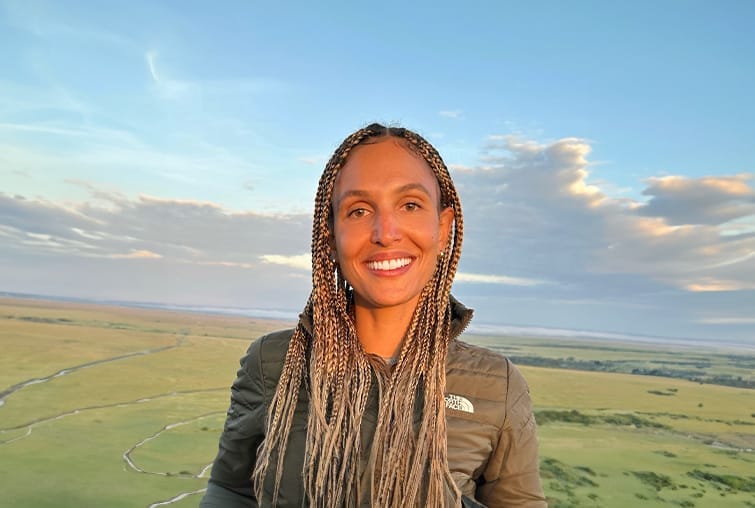
Rachel Chambers
Rachel Chambers
Hi, I’m Rae, based on the West Coast of Canada, on beautiful Vancouver Island. I’m a passionate traveler who has explored nearly 30 countries, but it was a solo journey to Africa that truly transformed my perspective. From the moment I arrived in Botswana, I felt an undeniable connection to the continent and was inspired to spend more time experiencing its extraordinary wildlife, breathtaking landscapes, and rich cultures. My solo travels have since taken me through Zimbabwe, Zambia, Mauritius, South Africa, Uganda, Namibia, and Kenya, where I experienced Gamewatchers Safaris and Porini Camps firsthand. It was during these immersive and unforgettable journeys that my passion for Africa evolved into a clear vision: to join the Gamewatchers team and help others discover the magic of safari. I’d love to connect and plan your wildest dreams!
You can contact me at rae@gamewatchers.com
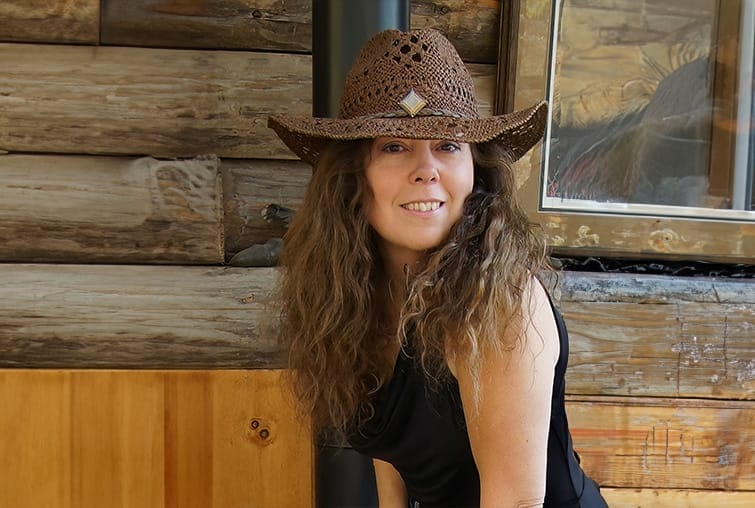
Julie Roggow
Julie Roggow
Greetings, I'm Julie Roggow, and I come to you with over two decades of immersion in the world of travel. My journey into the heart of safari adventures began as I traversed Kenya, Uganda, Tanzania, Rwanda, Botswana, Zimbabwe, and South Africa, capturing the essence of these mesmerizing landscapes through my lens. Among these remarkable destinations, Kenya and the Porini safari camps hold a special place in my heart. Their unique blend of wilderness and conservation resonates deeply with me.
My passion for travel is matched only by my dedication to sharing that passion with others. I'm here to ensure that planning your safari vacation is an enjoyable and seamless experience.
Feel free to reach out to me by email at julie@gamewatchers.com or through our toll-free telephone line at +1-877-710-3014.
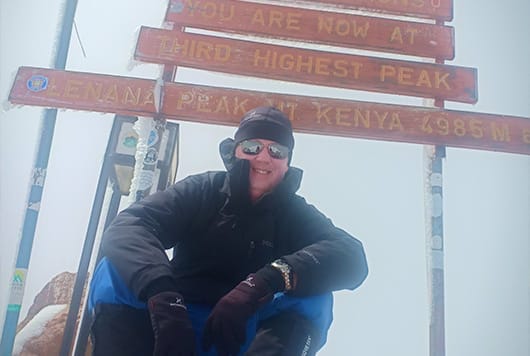
Wayne Hammond
Wayne Hammond
Hello, I'm Wayne Hammond, and I'm fortunate to have embarked on over 30 incredible journeys to the enchanting continent of Africa. It's a place that has captured my heart time and time again. My travels have taken me to Kenya, which I've had the pleasure of visiting far more times than I can recall, as well as to Tanzania, Zimbabwe, Zambia, Botswana, Rwanda, Uganda, South Africa, and Mozambique. Among my cherished bush haunts, I hold dear the Masai Mara in Kenya, the mesmerizing Mana Pools in Zimbabwe, and the wondrous South Luangwa National Park in Zambia. I'm not just a passionate traveler but also an avid amateur wildlife photographer and an occasional travel writer.
If you're ready to embark on your own African adventure, don't hesitate to reach out to me at wayne@gamewatchers.com or give me a call at +44 7986 978 985.
Andrea Landaeta
Hola, I’m Andrea and my love affair with the captivating world of safaris began during my teenage years when I embarked on my very first safari in Kenya. There, amidst the awe-inspiring wildlife and expansive plains, I found my true passion. Over the years, Kenya has called me back time and time again, leading me to explore its myriad camps, conservancies, and renowned parks. More recently, I've had the privilege of staying at all the Porini Camps, where the spotlight shines on wildlife conservation—a cause close to my heart as I traverse the globe. While Kenya holds a special place in my wanderlust-filled heart, Tanzania, Uganda, and Rwanda have also woven their magic into my soul. If you're eager to embark on your own safari adventure or share your passion for conservation, please feel free to contact me at andrea@gamewatchers.com
Let's connect and embark on a journey through Africa's wild wonders together.
Pranay Chandra
Hello, I’m Pranay Chandra, a veteran of the Indian Armed Forces whose profound passion for nature and wildlife led me to the world of wildlife photography. My lens has captured the essence of the wild, earning recognition in esteemed competitions like the Sanctuary Asia annual wildlife awards and the Natural History Museum’s Wildlife Photographer of the Year awards. Beyond photography, I’ve dedicated myself to conservation efforts, collaborating with Ecological Task Forces and supporting WWF India’s training initiatives in tiger reserves. In the realm of education, I’ve partnered with CEC, New Delhi, to create informative video programs on Human-Wildlife Conflicts. I’ve ventured to Kenya, embracing the splendours of Africa while staying at Porini camps and other renowned lodges.
You can connect with me via email at pranay@gamewatchers.com or by phone at +91 801 788 5256
Talk to a Specialist
Choose a Safari Specialist in your time zone and start planning your tailor-made safari to Kenya.
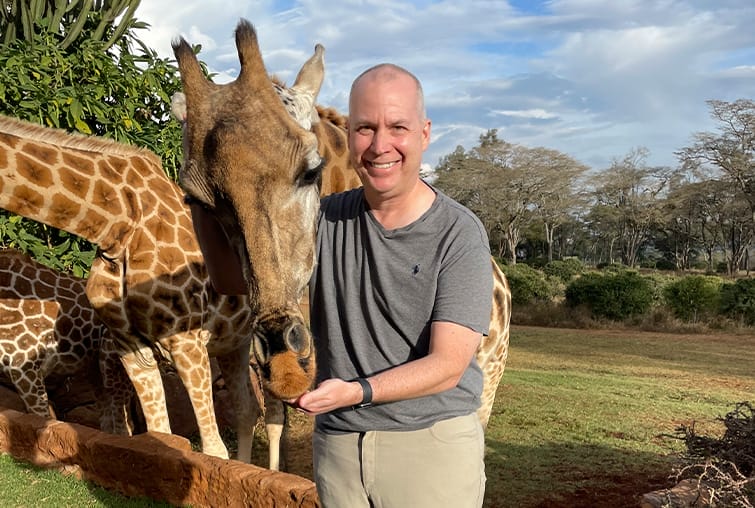
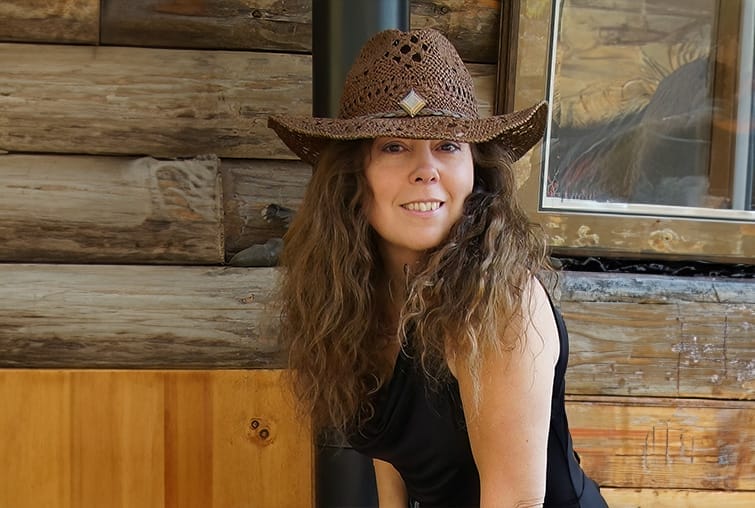
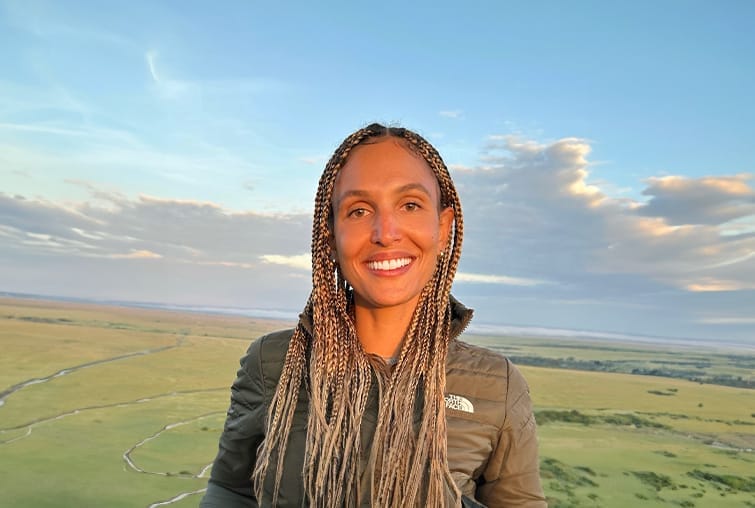
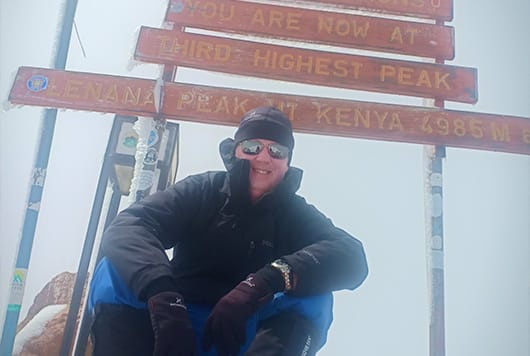

Hola, I’m Andrea and my love affair with the captivating world of safaris began during my teenage years when I embarked on my very first safari in Kenya. There, amidst the awe-inspiring wildlife and expansive plains, I found my true passion. Over the years, Kenya has called me back time and time again, leading me to explore its myriad camps, conservancies, and renowned parks. More recently, I’ve had the privilege of staying at all the Porini Camps, where the spotlight shines on wildlife conservation—a cause close to my heart as I traverse the globe. While Kenya holds a special place in my wanderlust-filled heart, Tanzania, Uganda, and Rwanda have also woven their magic into my soul. If you’re eager to embark on your own safari adventure or share your passion for conservation, please feel free to contact me at andrea@gamewatchers.com
Let’s connect and embark on a journey through Africa’s wild wonders together.
Andrea Landaeta

Hello, I’m Pranay Chandra, a veteran of the Indian Armed Forces whose profound passion for nature and wildlife led me to the world of wildlife photography. My lens has captured the essence of the wild, earning recognition in esteemed competitions like the Sanctuary Asia annual wildlife awards and the Natural History Museum’s Wildlife Photographer of the Year awards. Beyond photography, I’ve dedicated myself to conservation efforts, collaborating with Ecological Task Forces and supporting WWF India’s training initiatives in tiger reserves. In the realm of education, I’ve partnered with CEC, New Delhi, to create informative video programs on Human-Wildlife Conflicts. I’ve ventured to Kenya, embracing the splendors of Africa while staying at Porini camps and other renowned lodges. I’m based in Bangalore, India, and you can connect with me via email at pranay@gamewatchers.com or reach me by phone at +91 801 788 5256, including WhatsApp. Let’s embark on a journey to celebrate the beauty and conservation of our natural world together.
Pranay Chandra

Hello, I’m Kristy, your Australian-based Safari Advisor with Gamewatchers Safaris and Porini Camps. My background in ecology and conservation management, combined with a deep passion for nature and the great outdoors, led me to Kenya where I instantly fell in love with its spectacular wildlife and warm-hearted people. Having spent significant time at our Porini Camps and explored other camps we offer, I bring intricate knowledge to help craft your ultimate wildlife safari adventure. Whether you’re seeking the thrill of the savannah or the serenity of the wilderness, I’m here to make your safari dreams a reality.
Feel free to reach out to me on the Gold Coast, Australia, at kristy@gamewatchers.com or call +61 419 175 672
Kristy Thomson
Form Off Contact Specialist Box
Free Guide - How to make the best choice for your wildlife safari in Kenya
Don’t miss out on our free copy of our 36 page Guide to Choosing a Safari in Kenya. A must-read before booking any safari tour to ensure you make the most of your time and budget and get the best possible experience.
Safari Stories from Kenya
Discover inspiring tales, expert travel tips, and behind-the-scenes insights from the wild heart of Kenya. Whether you’re dreaming of the Masai Mara or curious about conservation in the private conservancies, our blog is your gateway to the magic of Kenyan safaris.
11 Essential Questions Before You Book an African Safari
When is the best time to visit Kenya?
Exploring Africa’s Wilderness on foot – Mara Walking Safaris
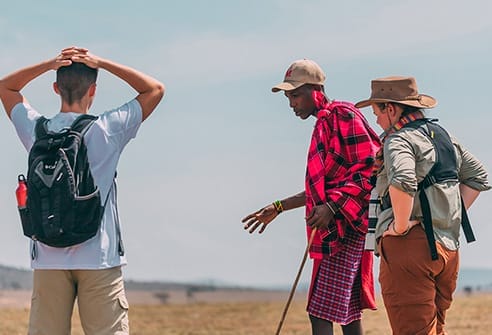
Exploring Africa's..
Exploring Africa's Wilderness on foot - Mara Walking Safaris
Have you ever imagined taking a slow-paced adventurous tour inside Africa’s wilderness on foot? Walking safaris are exactly that. Also known as bushwalks, walking safaris are completely different from game drives as they awaken all your senses allowing you to notice smells, sounds, and even colors of the wilderness.
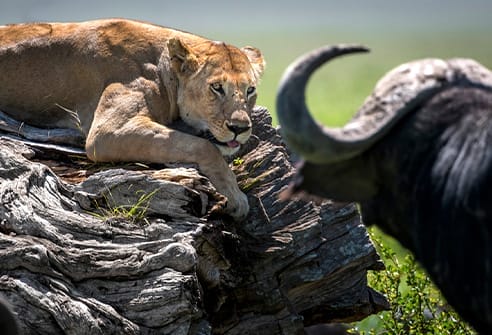
11 Essential..
11 Essential Questions Before You Book an African Safari
Ever imagined yourself on a wildlife viewing safari in Africa? Maybe it’s been a dream since childhood, or maybe it’s a new idea that sparked later in life – either way, you can’t wait to get on the African savannah plains and set out on a new adventure accompanied by an expert safari guide to watch the iconic wildlife!
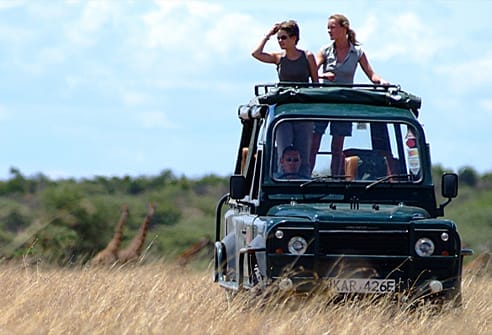
When is..
When is the best time to visit Kenya?
Since the birth of the modern safari holiday in the 1920’s, Kenya has been the destination of choice for intrepid explorers to get a taste of wild Africa and the storybook animals that roam free of cage and bars. On many people’s bucket lists, an African adventure taking in the Maasai Mara takes on a daydream quality. The Safari holiday has changed somewhat since the early days of heading out into the bush with gun and tent..













